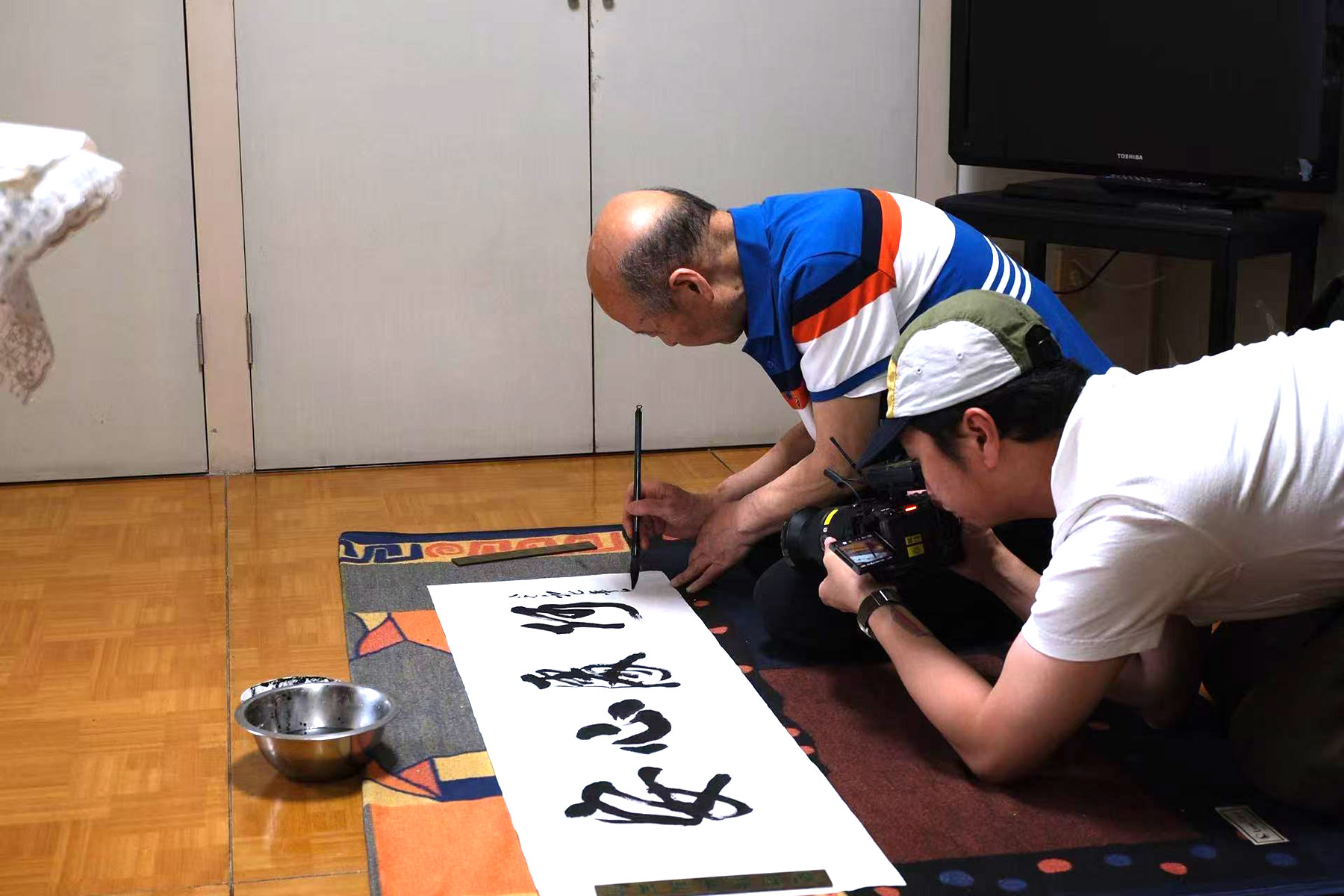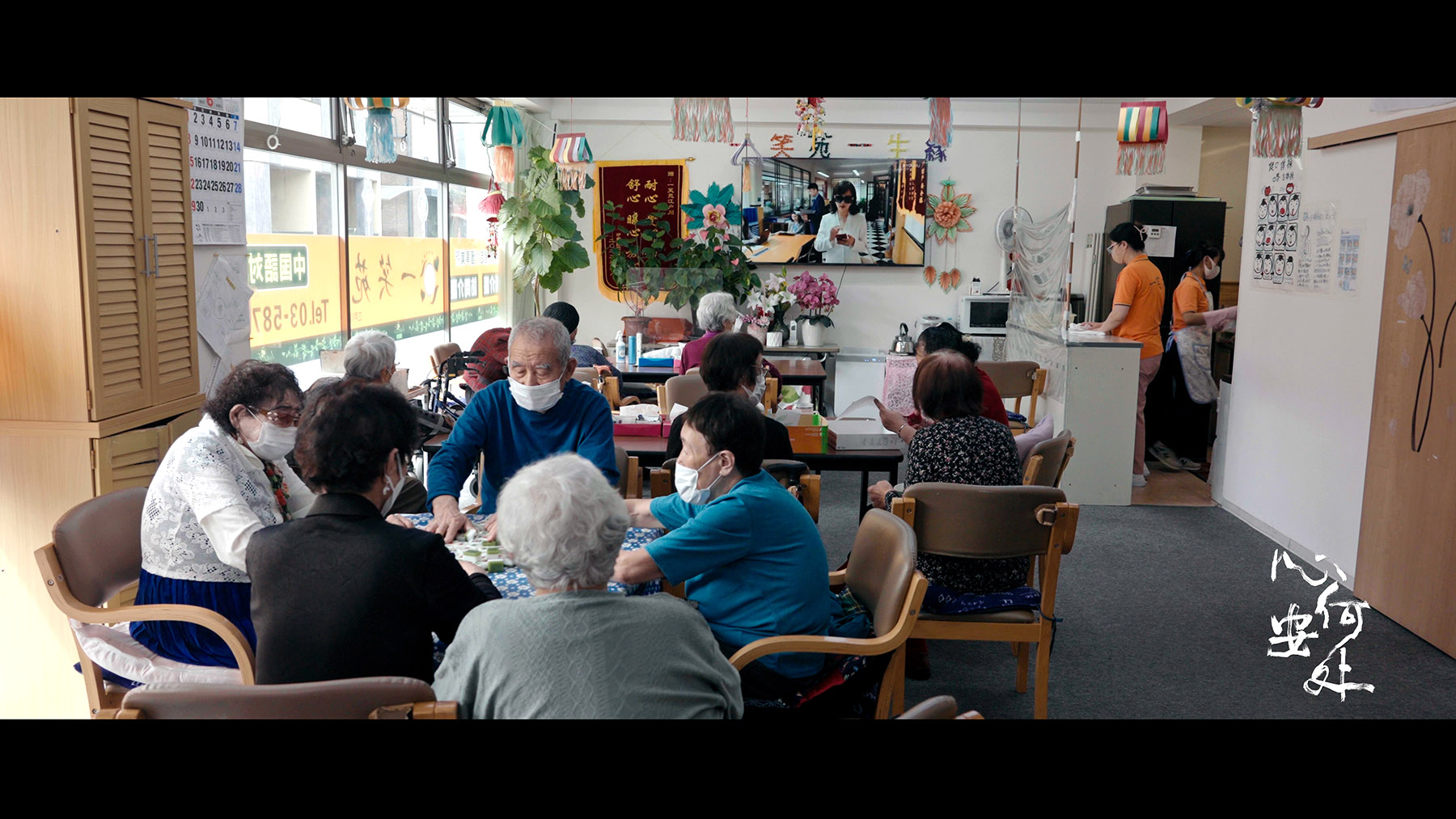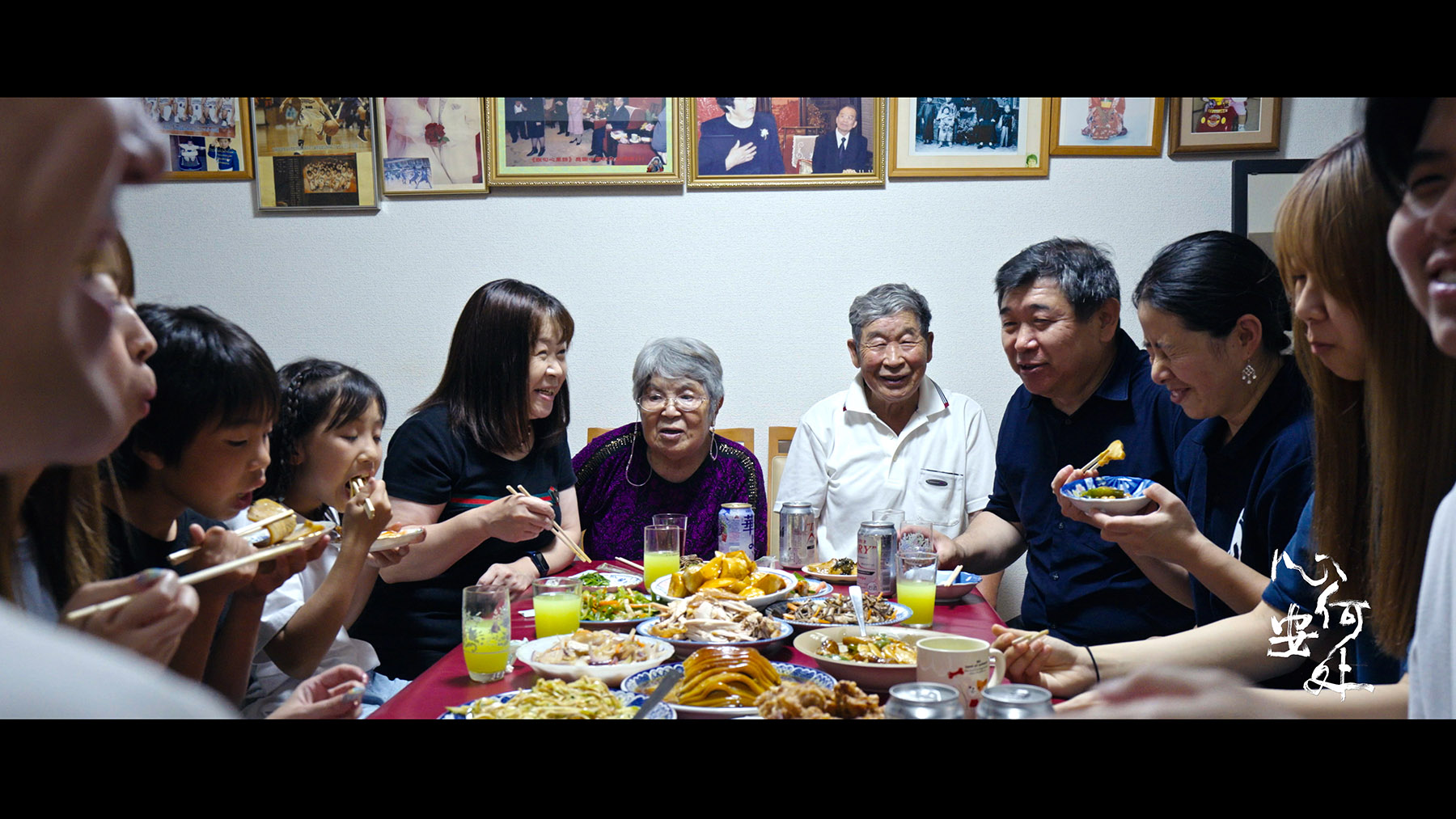War orphans recall lives shaped by China and Japan in new documentary, Zheng Zheng reports in Shanghai.

In a modest apartment in Tokyo, 80-year-old Narihiko Kimura dips his brush into black ink and writes graceful characters across a sheet of rice paper. The quiet rhythm of his hand belies the emotion beneath. As he writes, his fluent northeastern Chinese dialect fills the room with memories of a childhood not spent in Japan, but in China's Jilin province, where he was left as a newborn during Japan's wartime occupation.
"My Chinese mother, Xu Suzhen, lost all her teeth before she turned 40, because she would chew scorching hot sorghum to feed me since she couldn't produce milk when she adopted me," Kimura says, his voice trembling. "I once vowed that when I grew up, I would buy her dentures. But she passed away at just 52. This unfulfilled promise remains my lifelong regret."
Kimura is one of thousands of Japanese children left behind in China after Japan's surrender in 1945. Their lives and memories now form the heart of a new documentary, Journey Home, produced to mark the 80th anniversary of victory in the Chinese People's War of Resistance Against Japanese Aggression (1931-45) and the World Anti-Fascist War.
READ MORE: Documentary shines light on Yangtze River
The 60-minute film follows six elderly Japanese war orphans and a child of a war orphan, documenting their complex journey between two countries and cultures.
Adopted by ordinary Chinese families, they grew up as "Japanese war orphans" in name but lived essentially as Chinese — their habits, accents and emotions rooted in the land that sheltered them.
"Unlike most productions about the war, which focus on grand historical narratives, we wanted to examine this period through a more intimate, human lens," says Xie Shenzhao, chief director of the documentary. "The war orphans' stories have an inherent international dimension. By focusing on the lives of individual orphans, we can see how ordinary people, regardless of nationality, were shaped by the war in ways that statistics or military accounts can never convey."

The documentary team traveled extensively across China and Japan, visiting cities including Harbin, Mudanjiang, Changchun, Shenyang and Lingyuan in northeastern China, as well as Tokyo, Saitama, Nagoya, Kumamoto and Osaka in Japan, to track down survivors now in their twilight years.
They found that while most orphans returned to Japan during repatriation efforts in the 1980s and 90s, their sense of identity and belonging remains unresolved.
"When we first approached them, we thought we'd be interviewing Japanese people. But their northeastern Chinese dialect was stronger than mine. They were essentially Chinese grandparents," notes Xie, who hails from Northeast China.
"Often they would slip up and say 'we Chinese' before quickly correcting themselves to 'we Japanese'. This identity displacement is still evident decades later."
The film captures heartwarming tales of Chinese families who took in and raised Japanese orphans as their own, as well as the struggles many faced after they were eventually repatriated.
"They were abandoned three times," explains Xie, "first by their birth parents, forced by urgent wartime circumstances in China, then by the Japanese government, which initially set strict conditions for taking them back, and finally, by Japanese society which often treated them as outsiders."
Kimura himself returned to Japan in 1986. Determined to adapt, he deliberately avoided Chinese-speaking communities so he could master Japanese. Yet, after retirement, he gravitated back to the companionship of other war orphans, many of whom still use Chinese daily. Today, he and his Chinese-born wife speak Chinese at home and watch Chinese television dramas together, finding comfort in the language of his upbringing.
In Tokyo, a nursing home called Issoen, founded by Hiroshi Sasaki, a descendant of a war orphan, caters specifically to elderly war orphans. The staff speak Chinese, helping residents who never fully adjusted to Japanese society.
"The Japanese government struggles to address pension issues for these elderly residents who cannot speak Japanese. Their daily habits remain distinctly Chinese," says Sasaki. "But when they step into our nursing home, they feel they have returned home, to China."

A nonprofit organization founded by war orphans supports the community's welfare while promoting grassroots exchanges between China and Japan. After years of litigation, they secured national treatment and compensation in 2007. More recently, the group has been preparing for a September trip to China, a journey intended to allow members to express gratitude to their "second homeland".
For many, this may be a final farewell. "Most are in their 80s or older," says Xie. "Time is running out. For some, this trip will be their last."
The film also follows younger generations grappling with this complex legacy. In the family of 85-year-old Keiko Matsuda, the film captures an intergenerational language divide: the elderly couple speaks Chinese, their daughter is bilingual, while the grandchildren, born and raised in Japan, speak only Japanese and initially struggled to comprehend their family's unique history.
"Japanese schools barely cover this period of history," says Matsuda's daughter. "We have to explain to our children why their grandparents speak Chinese, and why our family story is different. When we visited China, we took them to museums about the Chinese People's War of Resistance Against Japanese Aggression. We wanted them to see that understanding peace is essential."
As the number of war orphans dwindles, the documentary serves as both a historical record and a reminder of war's lasting impact on ordinary lives. In their twilight years, most have found a measure of peace with their unique place in history, though the pain remains deeply embedded in their lives. "If we didn't record these voices now, this chapter of history might be lost," says Xie.
ALSO READ: Wartime survival saga returns to stage
The director also emphasizes that the documentary lets the personal stories speak for themselves. "We deliberately chose not to include expert commentary or heavy historical context, though we've done extensive research," says Xie. "By focusing on individual narratives, we hope viewers can form their own understanding about the human cost of war."
Facilitated by the National Radio and Television Administration and produced by Shanghai Media Group, Journey Home premiered this week on Dragon TV and across major livestreaming platforms. It is set to air on Phoenix TV and Radio Television Hong Kong on Sept 3. Later this year, it will be broadcast internationally in multiple languages, including Japanese and English.
"Whether in China, Japan, or other countries, we hope viewers can gain an understanding of the war orphan community, approach these stories with empathy, and above all, reflect on the importance of peace," Xie says.
Contact the writer at zhengzheng@chinadaily.com.cn


